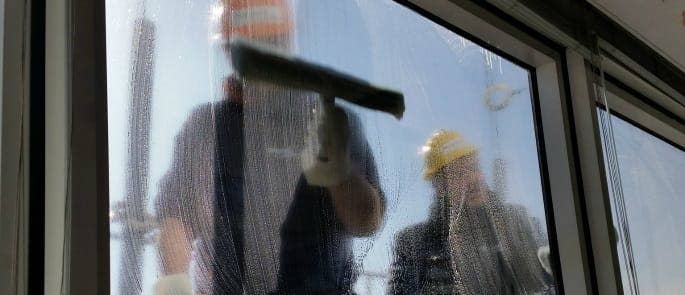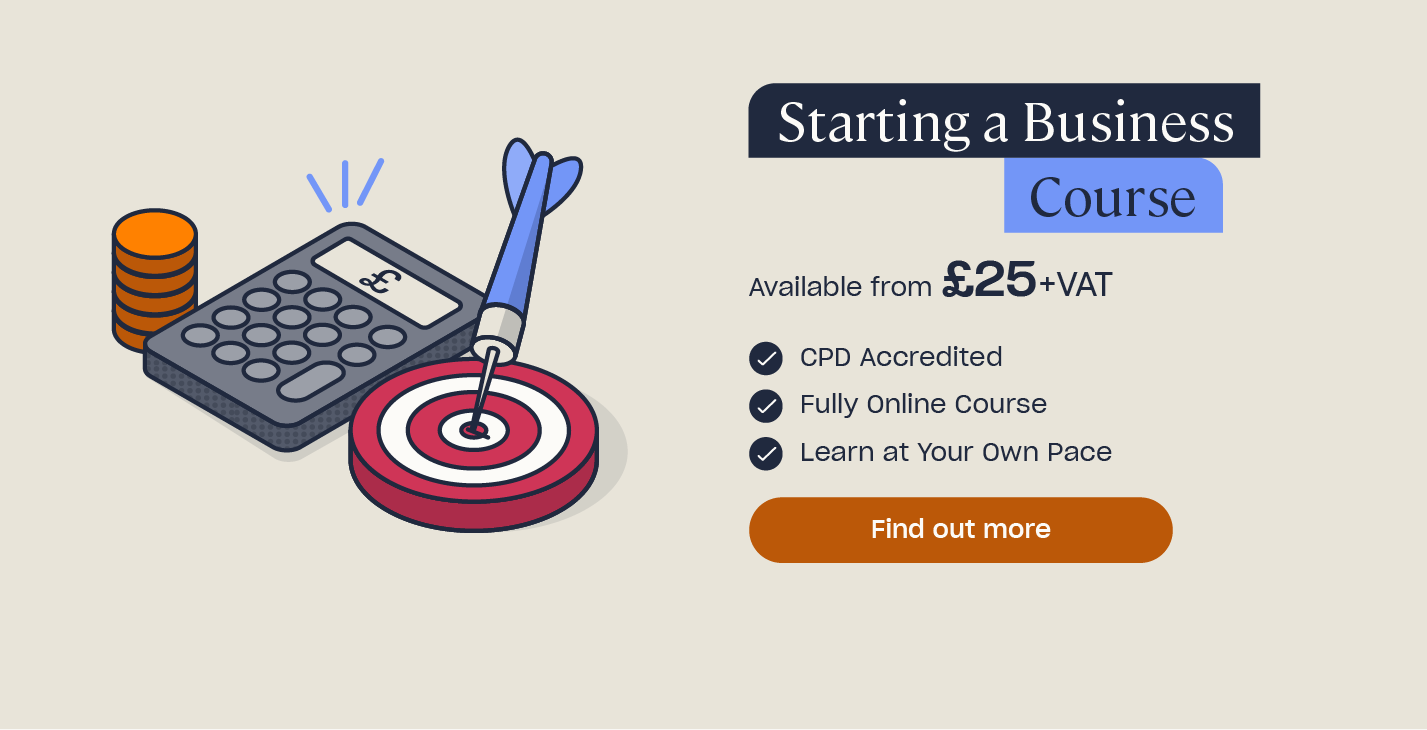Chapter 5: The Legal Requirements of Starting a Cleaning Business
Whilst you don’t need a specific licence to start or run a cleaning business, there are certain UK government requirements that you need to comply with in order to trade legally. This includes ensuring that your business is registered and that you’ve taken out the correct insurance to protect yourself and your employees against costly claims.
Legal Considerations
Register your business
If you’re self-employed then you must register as a sole trader with HMRC to show that you own the business. You’ll also need to register for self-assessment tax, meaning that you calculate and pay your own tax each year. You may find our Guide to Sole Trader Tax useful.
Need a Certificate?
If you’re a cleaner, you’ll regularly encounter substances that are hazardous to health. Make sure you have the knowledge to protect yourself and anyone you employ and try our COSHH Training for Cleaners today.
Get the right kind of insurance
There are two types of insurance that are essential for all cleaning businesses and a third type if you hire staff. These are:
- Public liability insurance – this protects you against claims from third parties in cases of personal injury or property damage, including accidents. It means you’ll be covered in case you accidentally break someone’s heirloom vase!
- Professional indemnity insurance – this protects you against claims from unhappy employees or clients. It means you’re covered if a customer refuses to pay an invoice or if you need to rectify a mistake.
- Employers’ liability insurance – if you have any number of staff then this protects you against claims from employees, in case they sustain an injury or illness whilst working for you.
To purchase insurance you can simply do an online search and take a look at the options available. Most insurance isn’t expensive and you can pay on a yearly or monthly basis. If you don’t take out the correct insurance then you risk hefty expenses if someone makes a claim against your company, so it’s worth doing!
Pay the National Minimum Wage
If you employ workers in your cleaning company then it’s essential that you pay them fairly – at least the minimum amount set by the UK government. The minimum wage rate depends on the employee’s age and is usually updated every October. As an employer, you must keep on top of any changes and ensure that your workers are paid correctly.
Cleaning Chemical Safety (The COSHH Regulations)
The Control of Substances Hazardous to Health Regulations (or COSHH) is the UK law that requires all employers to control the risks from harmful substances. As the owner of a cleaning business it’s your responsibility to ensure that the chemicals you use are handled, stored and used safely so that they don’t cause harm to you, your workers and your clients.
But how can you ensure chemical safety?
All cleaning chemicals are hazardous substances and must be treated with care.
The people who use them must be correctly trained and understand how to minimise risks. If used incorrectly then cleaning chemicals can cause all sorts of ill-health problems, such as asthma, skin irritation or even poisoning. They may even have flammable or explosive properties if they’re not handled and stored in the correct manner.
It’s not just a legal requirement to use your cleaning chemicals safely. Doing so will protect the health of your workers and will reduce the likelihood of expensive medical costs and lost productivity. If a staff member is off work ill, then you’ll lose a vital pair of helping hands and your income will begin to drop.
To comply with the Regulations you should first carry out a risk assessment.
This means taking a look at your cleaning chemicals and the places you’ll be working, and then identifying what may pose a risk to health. Read the warning labels of your cleaning products (hazard symbols are red, white and black) to assess which are likely to be harmful, as well as any safety data sheets (SDSs) that accompany them. It’s vital to ensure you’re not just relying on labelling and SDSs however. You must consider how the chemicals are specifically used in your workplace and work activities, and how these can pose risks. Consider whether you’ll be working in close contact with them and for how long. You can then use this information to work out how you can keep people safe.

14 Top Tips for Cleaning Chemical Safety
Follow these top tips to ensure that you’re using your cleaning supplies safely:
- Avoid the use of harmful chemicals where possible. Substitute the chemical for a less-toxic one wherever there is a choice.
- Never mix chemicals together. It could make them incredibly toxic or cause a chemical reaction or explosion.
- Don’t use more than is needed. Always follow the chemical’s instructions about how much to dispense.
- Don’t use chemicals past their use-by dates. Safely dispose of any out-of-date chemicals as they may become hazardous (as well as less effective).
- Prepare a fresh solution each time. Don’t re-use chemicals or carry the same bucket from premises to premises.
- Use a measured dispenser. This ensures you get the right amount each time and helps to avoid accidents.
- Dispose of hazardous chemicals safely. Most cleaning chemicals are water-soluble so can be poured down the drain, but those that aren’t mixed with water must be disposed of via an authorised waste carrier.
- Be careful not to spill anything. If you’re manually dispensing products then avoid spilling them, especially in areas where they may come into contact with people’s food or skin.
- Store chemicals in labelled, sealed containers. You should keep them in their original packaging, so you always know what they are and can access their labels’ safety information.
- Keep your chemical storage area tidy. Even if it’s just a box that you carry from job to job, ensure that it’s clean and secure so the chemicals can’t spill.
- Don’t use broken equipment. Keep everything that you use clean and in good repair to avoid accidents or contamination.
- Open a window or turn on the extractor fan. Ventilation is particularly important in small spaces, like bathrooms, where fresh air cannot flow as freely and you may become overwhelmed with the smell of chemicals.
- Train your employees. Ensure that they also know the risks and how to handle, store and use cleaning chemicals safely.
- Provide protective measures. It’s unlikely that you can avoid the use of chemicals altogether so make sure you and your staff are protected from the risks. For example, wear gloves, long sleeves and a protective face mask where required.
What Training Should I Take?
Qualifications aren’t needed to run a successful cleaning business, but if you want to help yourself rise above the rest then it’s essential to know what you’re talking about.
Taking an online course is an inexpensive, convenient way to bump up your knowledge and ensure that you understand all the different areas of your business. Training is also useful for your staff members if you want to educate them in safe working practices. High Speed Training offers the following basic-level, online courses which you may find beneficial:
Health and Safety Courses
- COSHH Training for Cleaners
- Cleaning in Food Premises
- Infection Prevention & Control
- Health and Safety Training For Employees
- Lone Working
- Manual Handling











